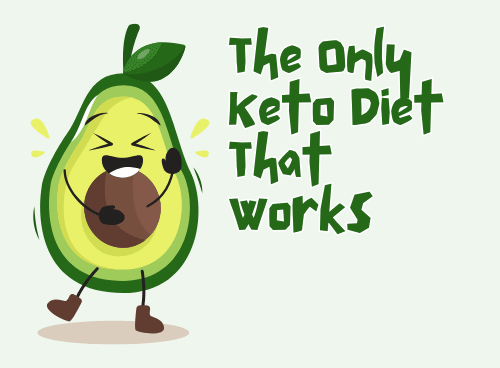
Why People Are Turning to Keto for Mental Health
For decades, the ketogenic diet has been framed mainly as a weight-loss plan or as therapy for epilepsy. But in 2025, conversations are shifting. Researchers, mental health advocates, and everyday people are asking: can keto also help the brain and emotions?
According to The Times, scientists have been exploring how higher protein intake and low-carb eating may lower risks of depression and dementia (The Times). Meanwhile, Stanford University is running clinical studies to investigate keto as therapy for mental illness, including bipolar disorder and depression (Stanford News). Even mainstream outlets like the New York Post highlight keto’s controversial, but growing, role in mental health improvement (NY Post).
The evidence is still evolving, but one thing is clear: the connection between food and mental health can no longer be ignored.
How the Ketogenic Diet Affects the Brain
Blood Sugar Stability
High-carb diets often create peaks and crashes in blood sugar, which can trigger mood swings and anxiety. Keto stabilizes glucose and insulin, leading to more balanced energy and emotions.
Ketones as Brain Fuel
When carbs are restricted, the body produces ketones — an alternative energy source for the brain. Research suggests ketones may provide a more steady fuel, reducing “mental fog” and improving clarity.
Neuroprotection
Animal and human studies hint that ketosis may reduce inflammation and oxidative stress in the brain, lowering risks of cognitive decline and dementia.
GABA and Glutamate Balance
Keto may influence neurotransmitters, calming overactive brain pathways linked to anxiety and seizures
What the Research Says
📌 Depression and Anxiety
Some early studies indicate that keto may reduce symptoms of depression and anxiety by stabilizing energy and regulating neurotransmitters. People often report feeling calmer, more focused, and less reactive.
📌 Bipolar Disorder
Stanford researchers are exploring keto as a possible therapy for bipolar patients who don’t respond well to medications (Stanford News).
📌 Dementia and Alzheimer’s
The Times reported that certain low-carb and high-protein eating styles may lower dementia risk (The Times). Clinical trials are underway to test whether ketones can provide neuroprotective benefits for Alzheimer’s patients.
📌 Everyday Mental Clarity
Even outside clinical conditions, many people notice improved focus and reduced “brain fog” on keto.
My Healing Journey with Keto and Mental Health
For me, keto was never just about weight loss. It became part of my healing rituals.
I started with Lazy Keto — keeping carbs low without obsessing over every macro. The simplicity helped me avoid diet anxiety. Over time, I discovered how it influenced not just my body, but my mind.
The spirals of panic became less frequent. Reading in the park with Luna, my husky, and eating a handful of nuts became a ritual of power. I realized: food can be medicine, when you frame it as care instead of restriction.
That’s why I also wrote about Keto for Mental Health: Can Food Become a Ritual of Healing? — because healing isn’t just in the lab results, it’s in the daily moments we create.
Practical Ways to Use Keto for Brain Health
If you’re curious about keto for mental health, here are some gentle ways to begin:
✅ Start with small swaps: replace bread with leafy greens, pasta with zucchini noodles.
✅ Choose brain-friendly fats: salmon, olive oil, coconut oil, avocado.
✅ Add magnesium-rich foods: spinach, nuts, seeds — calming for the nervous system.
✅ Practice Lazy Keto: focus on low carbs, let the rest flow naturally.
✅ Anchor it in ritual: pair meals with calming activities like journaling, walking, or mindful breathing.
Challenges to Be Aware Of
- Keto flu: early fatigue or headaches as your body adapts.
- Restrictive mindset: strict keto can trigger food anxiety; that’s why lazy keto is often better.
- Social situations: bread, cake, and “just one bite” moments. Planning ahead helps.
Creating Rituals of Food and Mind
Healing is not just about nutrients. It’s about relationship with food.
- Cooking slowly can be meditative.
- Eating with awareness turns meals into rituals.
- Choosing nourishing foods reinforces the message: you are safe, you are cared for.
In this sense, keto for mental health is not just a diet. It’s a practice of presence.
Closing Thoughts
Keto is not a universal cure. But it offers promising support for brain health, mood, and clarity. With research from Stanford, The Times, and NY Post, the conversation is expanding — from clinical labs to everyday kitchens.
For me, it’s not about strict rules. It’s about healing rituals. Meals that calm the body, nourish the brain, and remind me that food can be a companion on this journey.
👉 Have you experienced changes in your mood or clarity on keto? Share your story in the comments — your voice may help someone else find their healing path.
